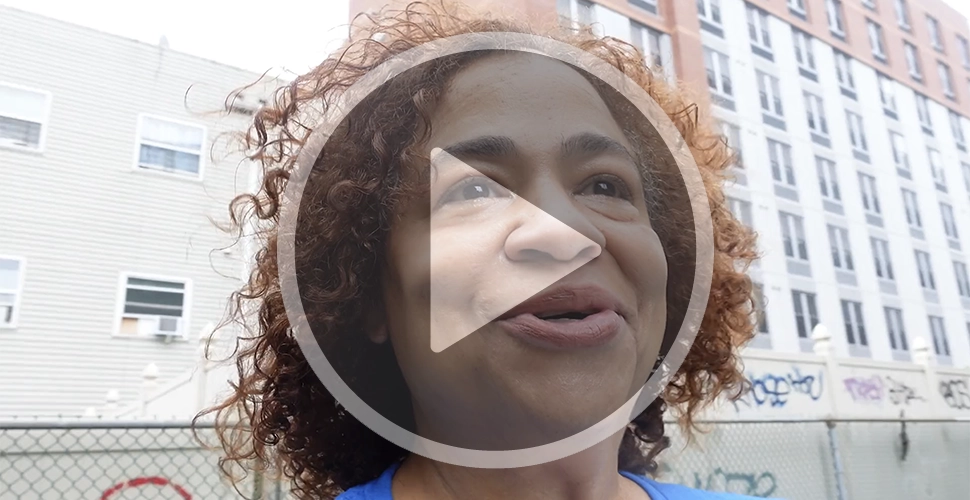Quitting menthol cigarettes after 40 years of smoking is a huge achievement. It’s absolutely life changing.
Just ask Millie of the Bronx, New York.
She started smoking menthol cigarettes when she was 14 years old because it was the ‘cool thing’ to do. She’s been hooked ever since, surrounded by a community where smoking menthol was normalized.
“Everyone in the Bronx, NY, smokes Newports,” Millie shared. Then added, “I always thought that menthol cigarettes are less harmful because of the minty taste.”
She isn’t the only one to mistakenly believe this.
Prepare to get inspired by watching her impressive journey to quitting menthol cigarettes here.
Want to learn more about quitting menthol cigarettes? Get answers to some of the most frequently asked questions below.
Are menthol cigarettes harder to quit than non-menthol cigarettes?
Short answer: Yes.
The minty coolness of menthol covers up the harshness of smoking cigarettes, deceiving individuals into thinking menthol cigarettes are not as dangerous as regular cigarettes. Menthol also suppresses the cough reflex, which makes inhaling smoke from cigarettes more tolerable and leads to a deeper inhale.
Plus, menthol enhances the effects of nicotine on the brain and can make tobacco products even more addictive. As a result, people who smoke menthol cigarettes can be less likely to successfully quit than people who smoke non-menthol cigarettes. These are some of the reasons that the Food and Drug Administration is proposing to take menthol cigarettes off the shelves.
But quitting is possible. In fact, nearly 40% of menthol smokers said they would quit smoking if menthol cigarettes were no longer available.
Policy changes that limit/restrict access to tobacco products can spur people who smoke to make a quit attempt. This moment provides a critical window to help people quit with easy-access, evidence-based support—before they switch to another tobacco product.
Why is it inaccurate to call it a menthol “ban”?
The proposed regulation is commonly referred to as a menthol “ban” but that’s a misnomer. Almost all cigarettes that are sold in the U.S. contain at least a little menthol to balance the taste of all cigarettes.
The proposed regulation is aimed specifically at products marketed as menthol cigarettes because they contain menthol at high enough quantities to be a “characterizing flavor.” In other words, it is something that the consumer actually tastes. Tobacco products with characterizing flavors like menthol are one of the primary reasons kids start using them.
Language around this proposed rule is important to get right. Calling it a menthol ban undermines the clear and compelling evidence about the public health benefit of removing menthol cigarettes from the shelves.
Are menthol cigarettes worse than regular cigarettes?
No, although industry advertising historically promoted menthol cigarettes as safer or better for health than regular cigarettes. Menthol cigarettes are as dangerous to an individual’s health as non-menthol cigarettes, and menthol cigarette smokers are as likely to experience premature morbidity and mortality as non-menthol cigarette smokers.
For additional insights on the health effects of menthol, see Truth Initiative’s Menthol: Facts, stats and regulations.
Is quit support different for people who smoke menthol cigarettes vs. regular cigarettes?
Yes and no.
The process for quitting menthol cigarettes is similar to the process for quitting other forms of tobacco: learning skills to manage triggers and cravings; using medication like the nicotine patch, gum, or lozenge; and enlisting support from others.
However, there are some approaches that can amplify effectiveness. Some studies show that switching to non-menthol cigarettes before a person’s quit date can help decrease the severity of nicotine cravings and increase motivation to quit.
Some menthol smokers also find it helpful to use other mentholated products like Vics VapoRub to get through cravings.
It’s important to note that menthol cigarettes tend to be preferred by Black/African Americans. Nearly 90% of Black/African American smokers prefer menthol cigarettes. To help Black/African American cigarette smokers quit, research shows culturally specific smoking cessation interventions may be more effective than generic programs.
For more insights on menthol, see our blogs: How Removing Menthol Cigarettes Could Help Black Communities and What Reduced-nicotine Cigarettes and Removing Flavored Tobacco Products Could Mean for Your People
Let’s help more people quit menthol cigarettes
Together, let’s help more people like Millie find their way to living tobacco free.
“It helps when you have someone on your side. I feel confident and I feel fresh,” Millie shared about how she feels after quitting using the EX Program. “I’m breathing better. I’m exercising more. All in all, it’s going well. I would like to thank the EX Program for changing my life.”
To see more about how the EX Program strategically helps employers and health plans end smoking, vaping, and nicotine use, please contact us today.





